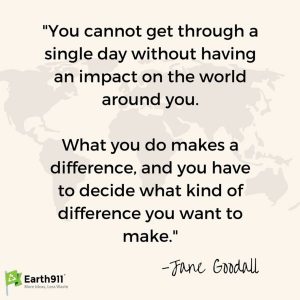AS A LOCAL RESIDENT …

know that all of our small actions do make a difference
The World Wildlife Fund (WWF-New Zealand) says “There are lots of simple changes that New Zealanders can make to help lower our ecological footprints. It all adds up. Small actions matter.”
Save Energy
Shop Responsibly
ReUse and RePurpose
Green Your Commute
Eat Wisely
Restore and Protect Nature
As citizens, we have more power than most people realise to change how things will proceed for the Earth. Here are a few everyday things you can do to make a difference
Local resources to help you out
Sustainable Whanganui Trust operates from the Whanganui Environment Base which is the hub for its activities and projects including:
- Resource Library – membership $5
- ReUse Academy – saving pre-loved useful things from landfill
- Green Bikes – reconditioning pre-loved bikes and fixing bikes
- Fruit Trees in Schools and in the Community
- School holiday activities
The Whanganui Resource Recovery Centre provides the place to recycle these main consumables: glass, cardboard, paper, tin cans, aluminium, plastics, e-waste. There are many more recycling services offered for specific wastestreams – please check this database and the WRRC website.
Secondhand shops – Whanganui is blessed with many wonderful charity/secondhand shops. Before buying anything new, have a look for pre-loved items. The Koha Shed is another great Whanganui initiative which recycles pre-loved items.
The MENZSHED in Whanganui is a great source of wisdom and has the collective skills and tools required to undertake woodwork, metalwork, upholstery, furniture restoration, coffin-making and personal projects. Check out what’s happening on their Facebook page.
Grumpy Old Men Enterprises (GOME) at 28 Hinau Street will take all manner of things for stripping and recycling: whiteware, electrical/electronic goods, steel, cast iron, brass, copper, copper wire, sheet metal (e.g. old corrugated iron fences), aluminium, stainless steel, TVs and car batteries. If you have scrap you could offer, contact Jim on 027 444 7474.
If there are others which should be mentioned here please let us know. Click on the button “Have a Question, Tip, Something to Add?”
Feeling overwhelmed and don’t know what to do?
Just start somewhere! Here are 10 ways to save the planet courtesy of The Whanganui Chronicle.
We also love The Lazy Person’s Guide to Saving the World … “things you can do from your couch“!
Wondering about composting?
Econation has a comprehensive beginner’s guide to different sizes and styles of composting system. Choose a composting solution to suit the scale of your food waste:
- Large – make a compost system in your backyard
- Medium – buy a wormfarm
- Small – buy or make a benchtop composting system
Alternatives to insecticides
Refer to this useful, in-depth guide from Consumer NZ
Power saving tips for your home
Sounds boring we know, but the cash you could save isn’t to be sneezed at. You can also help save the planet with some simple actions.
Serious about reducing your carbon footprint?
 What’s the average carbon footprint anyway? Well, depending on where you live …
What’s the average carbon footprint anyway? Well, depending on where you live …
- The average for people in industrial nations (including Kiwis) is 11 metric tonnes
- An average American’s is 20 metric tonnes
- The worldwide average is 4 metric tonnes
Calculating carbon emissions provides a starting point to see where there are opportunities to create change to live more lightly on the planet. Your carbon footprint is the total output of greenhouse gas emissions generated by your day to day living. “Carbon’ is used as shorthand for all greenhouse gases as it is the most dominant, although there may be other gases in addition to carbon dioxide (CO2) that contribute to your footprint.
Calculate your carbon footprint using one of these:
- Sustainable Business Network
- Toitū Envirocare – household, travel and offset calculators
- Econation
This Stuff article has 10 ways to help the environment.



